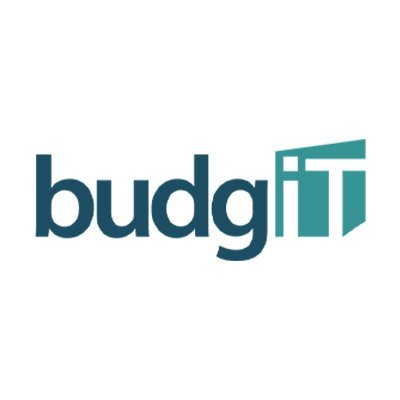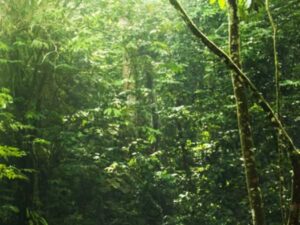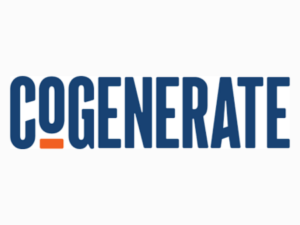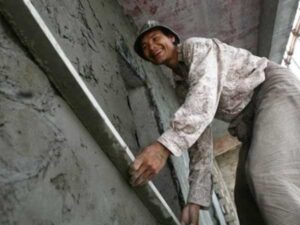BudgIT is a Nigerian civic organization that uses technology to increase citizen engagement with government institutions to facilitate societal change. The organization has started to scale to other countries in the region.
Oluseun Onigbinde of BudgIT spoke with Lissa Harris on December 12, 2023. Click here to read the full conversation with insights highlighted.
Lissa Harris: Can you start by introducing yourself and your organization, and talk a little bit about the problem that you’re addressing, and how you’re going about addressing it?
Oluseun Onigbinde: My name is Oluseun Onigbinde. I’m the director for BudgIT, a budget-specific organization with offices in West Africa, focused on enhancing participatory governance, and also strengthening public institutions. So the intersection of citizen engagement, and also making sure that institutions are more efficient to serve the public. Our goal in the end is to see the quality of life of citizens improve through efficient service delivery. We majorly work in five key areas. One is on budget access and research. The team will break down the budget into basics, and simplify it, and make sure everyone can understand it.
We also track public projects, for which we have a platform called Traackr. Then we also have institutional support. We help public institutions, media, society build and do civic products.We are like the civic infrastructure for Nigeria. We build stuff and people build on top of that. Then the fourth one is we also work on climate governance. It was natural resource governance before, but because of the adjustments we started focusing a little bit on natural resource and climate governance. Because we know a lot of resources are coming into developing countries in the environment. And finally we work on straining health systems, which is something that Skoll Foundation has helped us with, and backed us on over the years. Especially starting from the pandemic. We ask, how do we take out systems from where they are and improve them specifically. So that’s how it works.
Lissa Harris: Who do you work with directly? Who are your clients, and how do they benefit from your work?
Oluseun Onigbinde: We work with four major categories of people. One is digitally active citizens. People who have social media. Facebook and Twitter specifically. We have close to around 400,000 followers on social media. So we give them information, insight, educate them on public financing, and show them a route to public accountability. We do that effectively. We also work in the grassroots. And people who might not have enough or a lot of digital connections. So they rely maybe on radio. Town meetings. We have Traackr to handle that, with our local grassroots engagement part too, that were built over the years. And thirdly, we work with media in society. Building coalitions with them, supporting them, building solutions and infrastructure for them. And finally we work with government also. And find government who are willing to change their paradigm or change the dynamics. We are willing to support them. But our major focus is on the citizens. That is what we are really directly about. Citizens should be aware and should be understanding how public finances work. Their role in society. And how to hold public offices to account.
Lissa Harris: What would you say is the balance between you working directly with individuals and working with institutions? How much do you do of one versus the other?
Oluseun Onigbinde: I would say 70/30. We’re more on the side of citizens and individuals than institutions, definitely. We see ourselves as a platform. Even though we’ve been a long advocate, we increasingly see ourselves as a platform. That we build solutions, data, civic infrastructure. And citizens cannot act on the basis of that infrastructure. So take action and do what they’re supposed to do. That’s what it means for us..
Lissa Harris: What makes your approach distinctive from other organizations that are working in this space or on similar problems? What makes you different?
Oluseun Onigbinde: The key goal for us is that our work is centered on evidence. And it’s centered on data.We are not an investigative journalist platform. We just want to make sure that we continue to advocate, or demand, or build strategies for supply of public data. So that’s our first key goal. Getting public data to be held there. As much as we can find. Then also figuring out the way to build platforms to simplify and to ease the access to that level of data. So that’s what’s unique too. We are building this constellation of data, technology, and storytelling. The premise and the fundamental is data. We want to be able to accelerate access through technology. And we want to be able to tell it in an easy way that people can understand. That’s what we’ve done over the years. Intentionality around data. For example in Nigeria, it’s a major operation. We’ve advocated for publishing state financial data. We’ve advocated and people get that. We have advocated for publishing federal spending data. We’ve gotten that out there.
We get public budgets and public budgets data. Our deliberate intentions are that there must be access to data. Citizens must have an equal number of information to make informed decisions about the state of public finances. And I think that sets us apart from just being a typical NGO that is just maybe having events, capacity building, and all that. Data is like our raw material.
Lissa Harris: As a journalist that warms my heart.
Oluseun Onigbinde: Yeah, because we do the stuff, for example, there’s a tool we built called GovSpend. The government publishes these treasury reports. But the government website is so difficult to navigate. I don’t know why it’s that difficult, we complain. So we built a scripting tool on top of that platform. We build a platform that makes it easy now for journalists to build solutions or find something. I mean yesterday, there was a story about how the vice president’s office paid hotel bills for the daughter of the president. I mean, people asking, “Why is the daughter of the president drawing money from the public treasury?” But that was built on our own data. So we are also becoming, like I said, this civic infrastructure backboard for Nigeria.
Lissa Harris: You’ve mentioned a few of these already, but do you have any other favorite examples that illustrate the impact of your work?
Oluseun Onigbinde: The things we’ve done in the years, I mean to change the paradigm. We’ve been an advocate. There was a time where there was called budget padding. We saved the country over $2 billion. Because those items were removed from the budget. Some people added some frivolous items into the budget, and we built a huge advocacy point against it. And those items were removed from the budget. We’ve also been the leadership of the open government partnerships. Interestingly, one of the key successes on this core project was to ensure that health became a major element in the conversation between the citizens and the government. So there’s an open government partnership that tries to build a co-creation mechanism between the citizens and the governments. Nigeria is a signatory to it. We are the ones leading on the civil society end. And we wanted to make sure that health was mainstreamed. And in terms of engagement to citizens and government, it’s happening.
We’ve been able to get successes like that. We track public projects. Specifically primary healthcare centers. And we’ve gotten at least 15 this quarter. At least 15 primary healthcare centers now have improved facilities based on our relentless advocacy. We’ve delivered close to around 4,000 projects and facilitated the delivery. In Nigeria, because an item is in the budget, does not mean it gets done. Someone has to stay advocating, ensure that funds are released and it’s done. It happens at the functional level. Because you might build a school without furniture, desks. You know? Someone has to go and put more pressure, to make sure that [not only does the building] exist, it works for the people. This is the kind of focus point that we do as BudgIT, the kind of things we try and push in terms of success. But it’s a whole long list of what kind of successes for us.
Lissa Harris: What insights do you think could be taken from your work that others might be able to use? What advice would you have for other people working in this space?
Oluseun Onigbinde: I think the first insight is to understand that the citizens have to be at the center of everything. And you have to have some form of native intelligence and proximity to understand how best to engage with them. So technology is there, data is there, stories are there, but all of that is, I will call that the kind of citizen that we are speaking with. What’s their literacy level? What’s the level of enthusiasm in government? What are their biases? We are very deliberate about understanding proper citizen profiles to know how best to engage, and how best to activate or incentivize them towards action. We’re very big on the fact that we need to understand what is called “User behavior. “Understanding the citizen is very critical.
We also believe that data is very critical to disarm. Data simplification is critical for accelerating knowledge. Because data can be very complex. It could be challenging in its arcane mode. It’s very important that citizens, some people break that down, and simplify to people. Sometimes it could be radio, we’ve done radio before. We’ve done prints. We’ve done infographics. We’ve even been streaming infographics into Nigerian civic space in a way. So data simplification is extremely critical.
We also need to facilitate and improve the quality of dialogue. The entire work is to improve the quality of dialogue within democracy, which is very critical. Citizens must be able to base off facts, on evidence to be able to challenge public authority. A lot of people speak anecdotally, and it’s not based on facts. When you speak on the basis of facts, it disarms the government from thinking you’re biased or something. They know that you’re speaking from a position of knowledge, and there’s much more likelihood that you would get a response.
Lissa Harris: I am curious as to how much of a challenge changes in social media are for you, especially with what’s happened with Twitter in the last year or so. How much is that a challenge for you, platforms changing, and your behavior changing on them?
Oluseun Onigbinde: It’s difficult. There was a time in Nigeria where our main operation was that social media was banned for almost a year. So that really had a significant change.Twitter was banned for a while. And Twitter is our biggest outlet. Between BudgIT and Traackr, we have close to about 400,000 followers. We are the largest civic organization on social media. So it’s very challenging to keep that attention going with this whole disruption.
We start with the millennial kind of generation that had a lot of enthusiasm. I think a lot of them left the country or lost interest. So we are trying to now transmit, rethinking how we can apply ourselves better to the Gen Z generation. Which has its own different characteristics. We have been faced with the changes significantly. We also see changes in our user engagement. We have more differing users who have different kinds of expectations and expressions, and how they consume content. And that’s all a learning opportunity for us.
Lissa Harris: How do you measure success? What is the evidence that you’re making progress?
Oluseun Onigbinde: It’s a bit hard. Because if we were selling solar lanterns, we would’ve counted how many solar lanterns we sold last year. And how many we sold this year. But governance is a bit difficult, it’s a bit challenging. We put our metrics in four things. One, reach. How many people do we reach? How many people are we engaging? On what platforms? That’s why we are looking for every single platform to reach people at scale. The second point is community civic actions. How many civic actions are happening at the community level? When we built Traackr, we had officers who manned the offices and who manned the projects on the state by state level. So we have one for each state. And some states can be so big that you can’t even navigate in even a week. So we now have some community champions. People who believe in the communities, so they don’t need to travel to tell us if a road is being built, or if a school is being built.
It’s all about trust level. And for people like that, the number of actions that they’re taking, and what is transformative, is something that we are tracking. We also [look at successes of our government], supply of public data. How much public data we incentivized for access to. So for example, there was a time where state-level data was not public in Nigeria. It was difficult. And out of 36 states, we had five states’ public data. Now we have all the state’s public data. State-financial data. We are now getting them to publish their project implementation report on a quarterly basis. World Bank has also been very improvised, incentivizing that process. Then we now have the Nigerian state’s budget published. That’s a given. But now we have actual spending being published. We now build a platform on top of that to scrape that, to make that accessible to people. It’s the supply of data so that people can actually use it, and continue to put that to work. That’s something we also measure.
Lissa Harris: Sometimes we learn as much from things that don’t work as the things that do. Is there an example of something you tried that didn’t work, that you learned something from?
Oluseun Onigbinde: Many things. But I’ll give two. I think at the point we try to build, we tried to work, grow our scope. To build a solution, not just focus on public finance data, and just look at general data, export data, import data, inflation data. Just to make it more accessible. We spent a whole lot of money on that project. But I didn’t get that user excitement. I think it was because we could not tie some civic action to it. So if I know the export data, that’s good for the quants, and the investment bankers. There was nothing citizens wanted to understand about import, export, inflation, GDP, and all that economic jargon. It looked like we could not connect it to a civic action. No matter how much we tried to. So we cooled off on it. We think and understand that it comes back to the basics. We have to build it for citizens. And we have to ask ourselves, “How is this solution scalable amongst citizens?” And even among citizens, who are the stakeholders who really need these products, and they can scale them.
So it’s something that we learned from. And I think we’ve also tried in some way to work with government. I don’t think it’s been as easy as we thought it would be. Because of perception. But that’s changed since. That was in the early stages of the budget. Governments, they don’t like us much. But they also don’t hate us that much. We’re at that fork in the middle. Because we come from a lot of data and evidence. So it’s like, “we’re not trying to tell you, we can’t say we are doing fake news.” We just say, “This is data we found, and this is what you’re doing wrong.” Being patient enough to get institutional assimilation. To get institutions to trust you, to believe in you. In the early stage we spent a lot of time trying to encourage government interest, but we didn’t find it. But over time we figured out that it would actually work as we worked on the citizens, and we built the reputation for ourselves.
Lissa Harris: Although I imagine you get some pushback for efforts to make the government more transparent from within, no?
Oluseun Onigbinde: Yeah, definitely. People will partisan you, they’ll believe you are partisan. They expect you to speak every time. They expect you to have every opinion on every situation. Because if you don’t, it looks like you hold some level of bias in the system. And sometimes you don’t have the resources to speak every time. The team is not there. Maybe the resources are not there. Sometimes it is very difficult to properly do that. But we keep trying, we keep pushing.
Lissa Harris: Setting aside the issue of funding, because funding is a struggle for everyone, are there other kinds of large-scale challenges that you haven’t been able to solve?
Oluseun Onigbinde: I think scalability is a problem. We’re pushing to four new countries, Ghana, Sierra Leone, Liberia, and Senegal. And I would say it takes a while to be able to drive impact. Because no two countries are the same. I bring my solar lantern analogy. It’s governance here, so norms, institutions, laws. A lot of things would define how we should engage. We’re two years into those countries. We started in 2021. So we’re still learning about what’s our best approach in making all of this work effectively as it would. So scaling is a problem. And we also are not getting the resources to do what we want to do. I mean Nigeria looks relatively well funded, but for other countries, Liberia is the only one where we have found fortune. But for Sierra Leone, Ghana, and Senegal, it’s been a struggle. Convincing donors to see us as not just a Nigerian organization from a sub-regional one.
I think Skoll has been really helpful. Without Skoll we would close most of those offices. Because the CTAP project that Skoll funded for the last three years was focused every day on sub-regional work. So it wasn’t just Nigerian. It helped us be able to fund projects in those spaces. Again, another big challenge I think is talent. Talent is also a big problem online. Because we have a lot of talent migration, people moving out of the country. In a way it’s a big challenge that’s not just a problem of budgets. So it’s not something that we do, we’ll do something internally. But I think we seek to pride ourselves as one of the best places to work in the nonprofit sector, local nonprofit.
Talent migration means constantly being able to strain in the pool. I think we are lucky this year, but the last two years have been really difficult. Because a whole lot of people are looking at the UK, at the US, and Canada. And talent would find its way everywhere. We’ve also built a huge reputation of capacity. We refer to it internally as Andela. Andela is a start-up focused on tech training in Africa. We call the identity of Nigeria society. Because a lot of people have left us that need to be working at the World Bank. Maybe someone who works in the UK Office of National Statistics, or we have someone who’s the country director for ONE. One.org was a former operations aid for budget. We have at least 10-12 people who have left the organization and built something great for themselves.
Lissa Harris: On one level you lose them, but also then you have a relationship.
Oluseun Onigbinde: Yeah. We have the relationship and that’s really, really helpful. In terms of a lot of people. This year we have three people who have left us to join IBP [International Budget Partnership]. Sometimes we don’t like it, but sometimes we do. We also want people to grow and understand that you have a lot of work. So talent migration is a big problem. And that’s why someone like me is great, and I believe because I have to keep fundraising, and to ensure that we can pay people competitively to get them to stay. I think the data is also a problem. You want more data, definitely. Data is what we want more of. And you want more accurate data, more detailed data, that can allow you to define interrogation.
I think that’s a constant struggle for us. New government comes, and they want to stop publishing the data. We have to fight to institutionalize our work in terms of data software. That is one of the biggest challenges we have. It’s still depending on if the government feels like we want to publish or not. Or you have to do some on that group table engagement. People must understand that this is our obligation, the obligation to know. The right of citizens to know. Somehow it’s still a challenge with the spaces we work.
Lissa Harris: Can you talk a little more about how you’re working to advance systems level change, whether through partnerships, technology, or other approaches?
Oluseun Onigbinde: There are at least five ways. One is infographics, mainstreaming infographics in Nigeria. Before BudgIT, it was difficult for government, or citizens, or normal society even to engage citizens. It was long, boring academic stuff. We’re the ones that pioneered the idea of, you can’t just publish things in a difficult, esoteric language. You must break it down. You must design it well. We train about data design, communication. And that’s really been helpful. Deliberately we’ve changed the paradigm when it comes to infographic design.
The second thing is privacy of data. We’ve seen a whole lot of organizations also learn from us about how we’re using data to build engagement. We’ve seen people also build up procurement data, on audits data. On SDGs data. And they’ve taken a whole lot of interest from us.
We have a space called CivicHive, which is used to incubate new leaders within the civic society, or within the civic tech space. And we built some level of traction and evidence in that space. So being able to also mainstream the use of data within the civil society is helpful. And I think thirdly, in terms of system level change, is government. We’ve changed the paradigm in terms of transparency. Transparency now means a lot to more governments. We now have states ranking. A quarterly ranking of states performance. Maps of financial performance. And all of the states want to be number one. They won’t want to be number two. Because they all have funders, debt rating agencies, banks, are using that to do a proxy analysis of the current status of a state.
We’ve also built a reputation as people that we want to be in BudgIT’s good books with, publicly in some sort of way. And I think when you match that with work we’ve done with citizens, and incentivizing civic action, it’s something worth exploring much more.
Lissa Harris: What do you think is most needed from other actors or partners – I’m thinking particularly of government – to advance systems level change?
Oluseun Onigbinde: I think trust. Trust has to be something that we have to understand, that we are all working towards a progressive and productive society. And in building trust, it means that I acknowledge your fears. I’m nuanced in my conversation, I’m aware of your challenges, but I also understand that there’s an end goal that we all have to reach. And we are all working towards that end goal from different end points. So trust is still a big challenge within the governments, that space that we work in. I believe that if we are able to challenge authority, to maybe do more co-creation with government on certain issues, we can get many things to happen. Because Nigeria is still a relatively young democracy. Compare that to the UK, or the US system. We’ve been in and out of military reign. But this is our 24th year of having democracy uninterrupted.
So there’s still those libels, and those strokes of military reign, it’s still in the system. It’s still hanging somewhere there. Which is something I found out. Education is not just on the citizen’s side alone. You also need the whole of education on the government’s side. Because you’re elected in public office doesn’t mean you have privileged information.The citizens constantly deserve to know, and you deserve to ask questions. You deserve to improve the quality of debate. So I feel that trust, which is open to learning on both ends, is critical. Once we trust each other, we’ll get better results. There’s also a question around the quality of public institutions that need a lot more investment. A lot of people there are just there because they don’t have any other place to go.
So last year we failed. We said we’re going to have a public sector fellowship program. To get people working in government, to just work with us for a month. And see how we do things, and see what our energy is, where our motivations lie, and where our interests lie. But we didn’t, we weren’t able to. But I think we want to explore that next year. For them to work with us for a month or two, to be able to see our approach and how we see things from the outside. I think if we are able to improve the quality of public’s institutions, it will change the paradigm.
Lissa Harris: How do you see your work evolving over the next five years?
Oluseun Onigbinde: We’ve come from a place where we were trying to chase legitimacy. And for me it was like the first five years. To a place where we were like a strong advocate. Now in the next five years, we were allocated to fix public institutions, fix roads, fix schools, field hospitals, fix this, fix that. But now we’re evolving into a platforms phase where we want to build an infrastructure and want citizens, media, government to build on top of that. And that’s what’s driving us in how we now invest much more in the use of technology. We don’t want to see how many times a budget speaks about some certain issue. We want to care about how many times our citizens speak about that issue. And how much excitement is that generating within the taskforce to demand some form of response in a way. So in my head it’s more about us building a platform.
So a platform for budgeting, a platform for actual spending, a platform to get citizens, public institutions to use data visualization to advance their work. Building a platform that can enable civic action. Which doesn’t mean we won’t advocate, or we won’t push government when we think citizens don’t, are not currently, or won’t take citizens’ voices further. But we want citizens to be the driver, where we are the ones building that backbone. For example, we have a new government now. And they weren’t excited about publishing a detailed budget. Nigeria’s budget is always very detailed. And they just came in in May. They weren’t excited. And we knew that was going to take us like 10 years back. Because the entire thesis of the budget was that public budgets were now public. We were simplifying it. And we had to fight internally. A budget of five years ago, I tell you we’ll go on social media and rant, and get angry, and stink up your whole place. But budget of now means we now engage.
We were trying to build a moment of trust with government, “Why would you not do this?” We wrote to the minister, we called the minister on the phone, he said, “Oh, it’s not a big deal.” So people are resisting the system. But I have to get ahead of that now. And the data was published. We didn’t rush for the first three days to analyze the data. We wanted citizens to scrap the document, and analyze it themselves. Before we now say, “Okay, this is our own professional view of things.” Our orientation is moving gradually into where citizens should be at the front barrier. And we want to measure how the issues that matter to us also matter to the citizens in the end. So as I said, we’re evolving into a period of growth to drive our legitimacy and our name brand, brand recognition. Advocate to accelerate some of the impact policy.
But now we’ll be moving to a platform phase where we want citizens to be [the actors and to do their work]. As an example, I can share a link of the vice president’s stuff. And if you check, the story that was published yesterday. By the time you read that story, you would see data, that it was based on the platform that we built, that they wrote that story on top of that.
Lissa Harris: I’m curious about your relationship with news media and other analysts. Are people mostly taking what you do and running with their own thing? Or do you have partnerships where you work with media organizations?
Oluseun Onigbinde: We do fellowships. We have a CivicEye fellowship, which is a fellowship that we do to train new leaders in the civic space. This year we were focused on the creative change makers. People that did skits, podcasts. A young generation wanted to be able to enhance their talent for civic purposes. That was our focus for this year. We now do journalist fellowships. We did a GovSpend media fellowship, in which we took 12 journalists this year. We paid them for a period of three months. Somewhere around 200,000 Naira. They would pay them for three months, and they had to write stories, three stories each. Based on the data that we have developed on the GovSpend platform, we now build platforms for the public treasury. And this is almost the data in hundreds of thousands of rules.
I’m talking about actual public spending over the last three years. We know there’s a whole lot of corruption, waste, and a lot of exciting stories in there. By the time you join the data together, we may be beneficial ownership, and connected with the company registry, and all of that. Maybe the procurement system will be much clearer to you. And there have been a lot of great stories out of that. So that doesn’t make us look nice to people, but we have to keep trying here.
Lissa Harris: I want to thank you so much for taking the time to talk with me.
Click here to read the full conversation with insights highlighted.
Lissa Harris is a freelance reporter and science writer (MIT ’08) based in the Catskills of upstate New York. She currently writes about climate, energy, and environment issues from a local perspective for the Albany Times Union, her own Substack newsletter, and various other digital and print publications.
* This interview has been edited and condensed.
Find other civic organizations that have successfully scaled.







